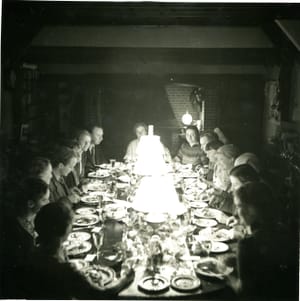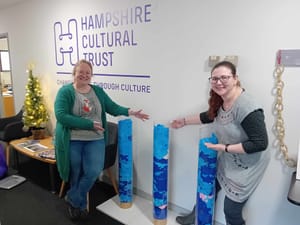Hampshire Cultural Trust has received funding from the National Lottery Heritage Fund to help reimagine the Allen Gallery and its nationally significant ceramic collection. As a part of this project, we are researching and discovering the collections’ untold stories.
This month’s article tells the story of influential ceramicist Lucie Rie.
“To make pottery is an adventure to me, every new work is a new beginning. Indeed, I shall never cease to be a pupil”
This beautiful bowl is one of several pieces created by Lucie Rie, cared for by Hampshire Cultural Trust. It demonstrates the great artistry of a someone who did not see herself as an artist, claiming that it was her profession, stating “I like to make pots – but I do not like to talk about them” to reporter David Sexton writing for the Sunday Telegraph in 1988.
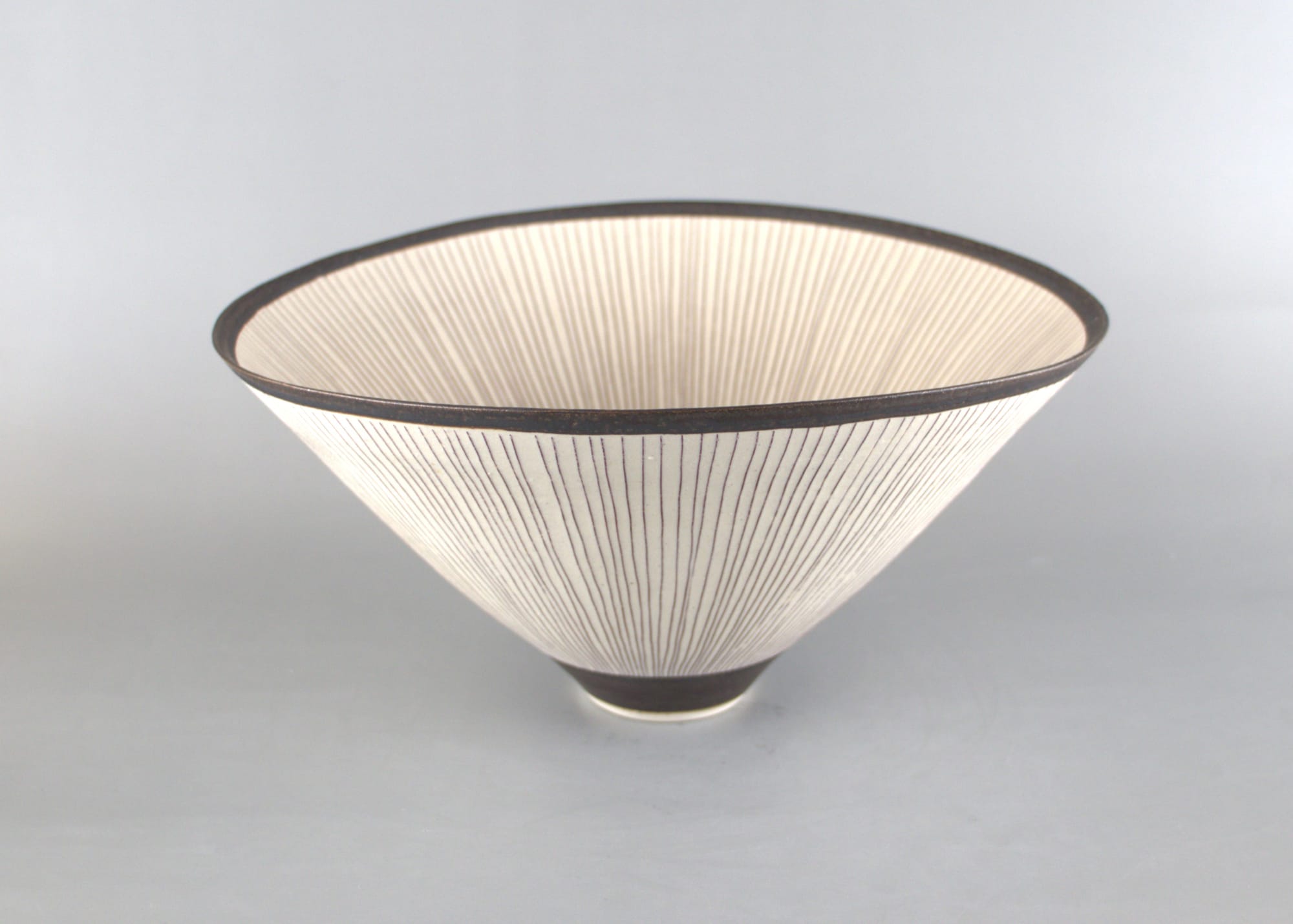
Despite her modesty, Lucie Rie is seen as one of the most influential studio potters of the twentieth century. Her trademark extraordinarily fine, hand-thrown porcelain pots, bottles and bowls, elevated pottery from functional objects to be seen as fine art, paving the way for future potters to be considered artists.
Born in 1902 in Vienna, Austria, Lucie grew up in a world of modernism. Her student days in Vienna had introduced her to the style and elegance of modernism, and it was at the Kunstgewerbeschule in the early 1920s that she discovered a fascination with glazes, which continued throughout her career.
Lucie fled her homeland for Britain, following the Nazi invasion of Austria in 1938. She found Britain to be vastly different to her experience in Austria. Back home she was a well-known and respected potter, but in Britain the world of ceramics was dominated by the Leach Pottery, which favoured historic craft traditions, with common rustic features, totally opposite to her delicate pieces with walls described as too thin and pottery feet as too small.
Spotting a gap in the market, Lucie set up a studio in Albion Mews, London, in 1939, making ceramic buttons for the fashion industry. Drawing on her fascination with glazes, Lucie colour matched buttons to designers’ fabrics, and later made jewellery, umbrella handles and mirror frames.
In 1947, Lucie hired Hans Coper, a Jewish exile, and together they created stylish, functional ceramics which were sold in department stores in London and New York, as well as making tableware and individual works, regularly exhibiting at the Berkeley Galleries in London.
Unlike many other potters Rie only fired her works once; she applied her glazes by brush when the clay was unfired. This technique was not only economical, but it produced surfaces, textures and colours that were bold, vivid and alive. During the 1960s and 70s, Rie used the new thick, textured glazes in pinks and blues to highlight the shape of her work. She continually experimented with glazes and techniques such as sgraffito, which incorporated fine, linear designs scratched into layers of colours – our object of the month is a perfect example of this technique.
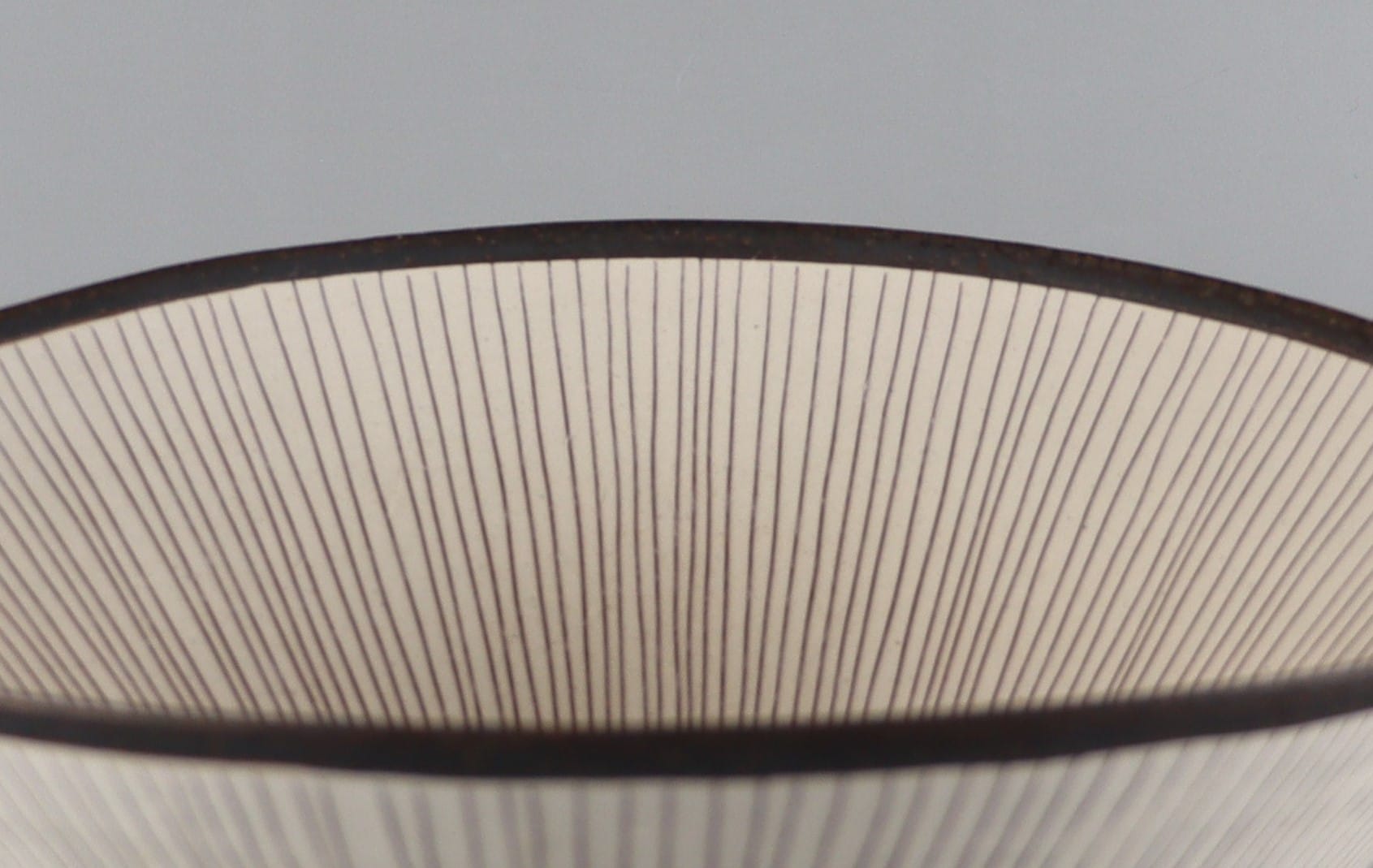
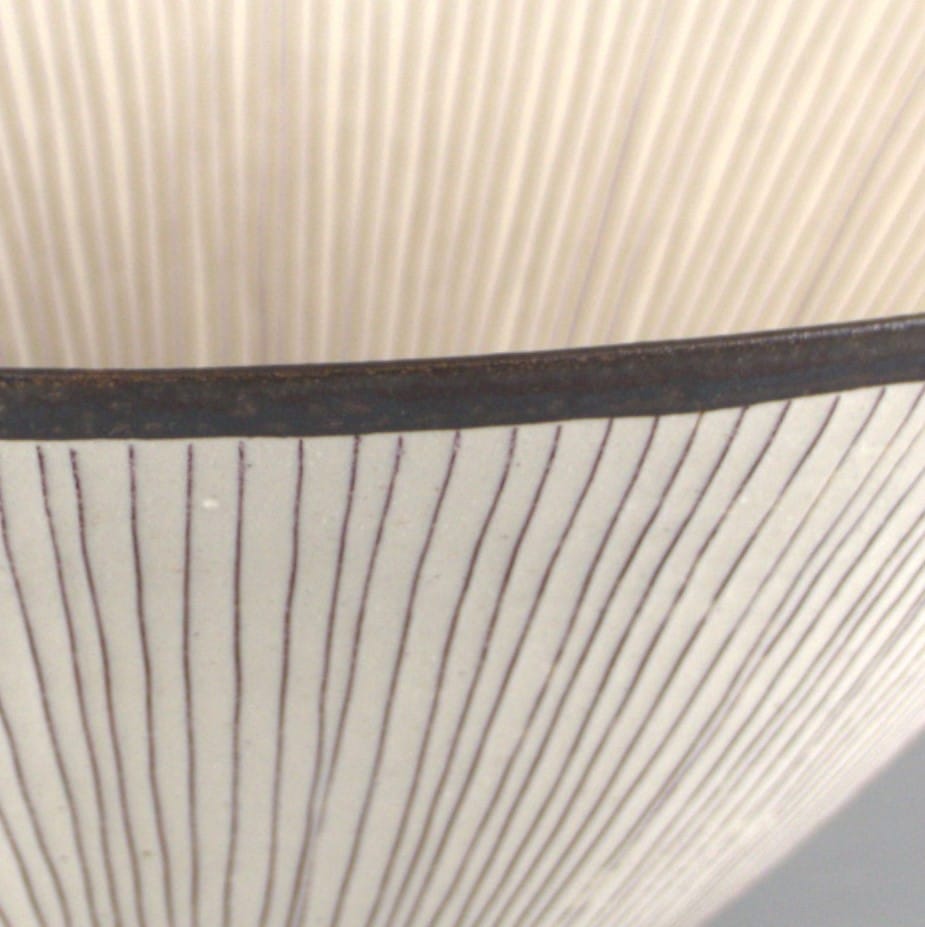
Caption: Lucy Rie regularly used the Sgraffito technique in her work, in this example the white slip layer is scratched to reveal the bronze colour below. (HCMS1971.437)
In 1967, the Arts Council displayed a retrospective of Rie’s work. In the following year, she was awarded a CBE and in 1981, she received a DBE in recognition of her contribution to British Cultural Life.
She continued to work into her late eighties but was forced to stop work in 1990 after a series of strokes. Rie died at her home, 18 Albion Mews, on April 1, 1995, leaving behind her a legacy of work that continues to inspire and delight ceramicists and collectors alike.



